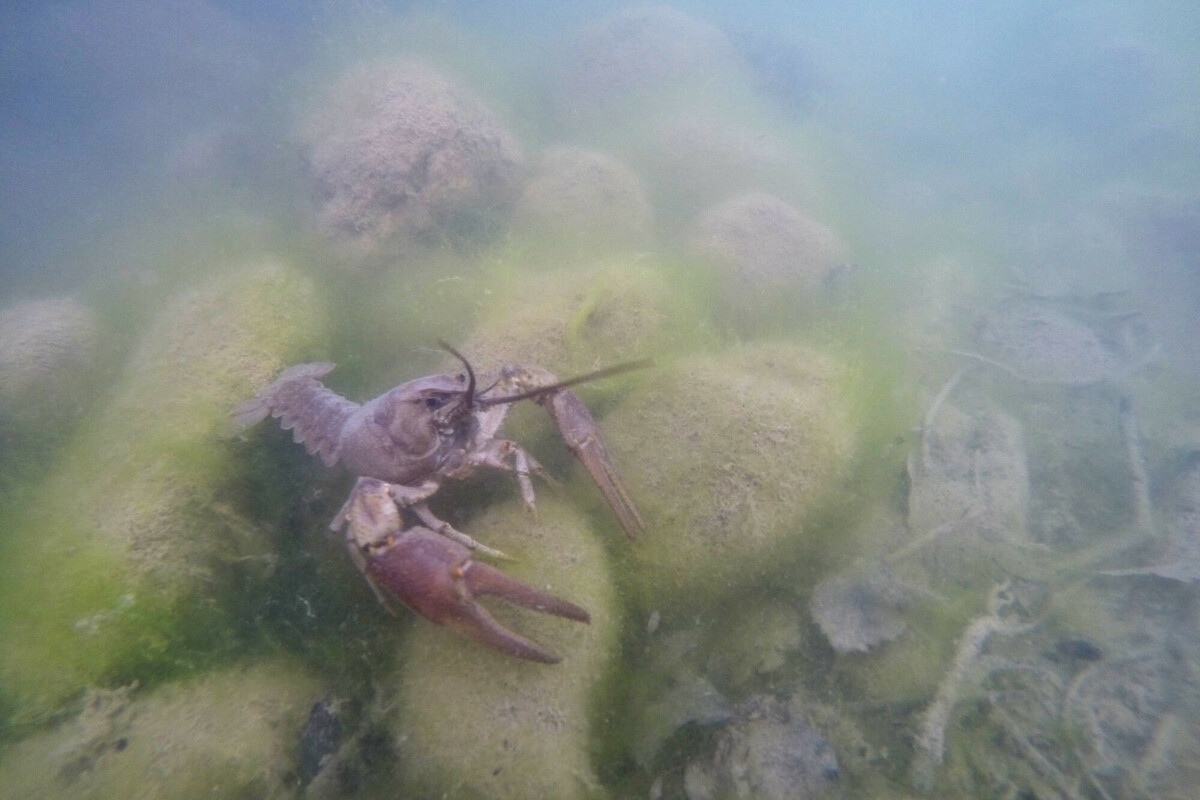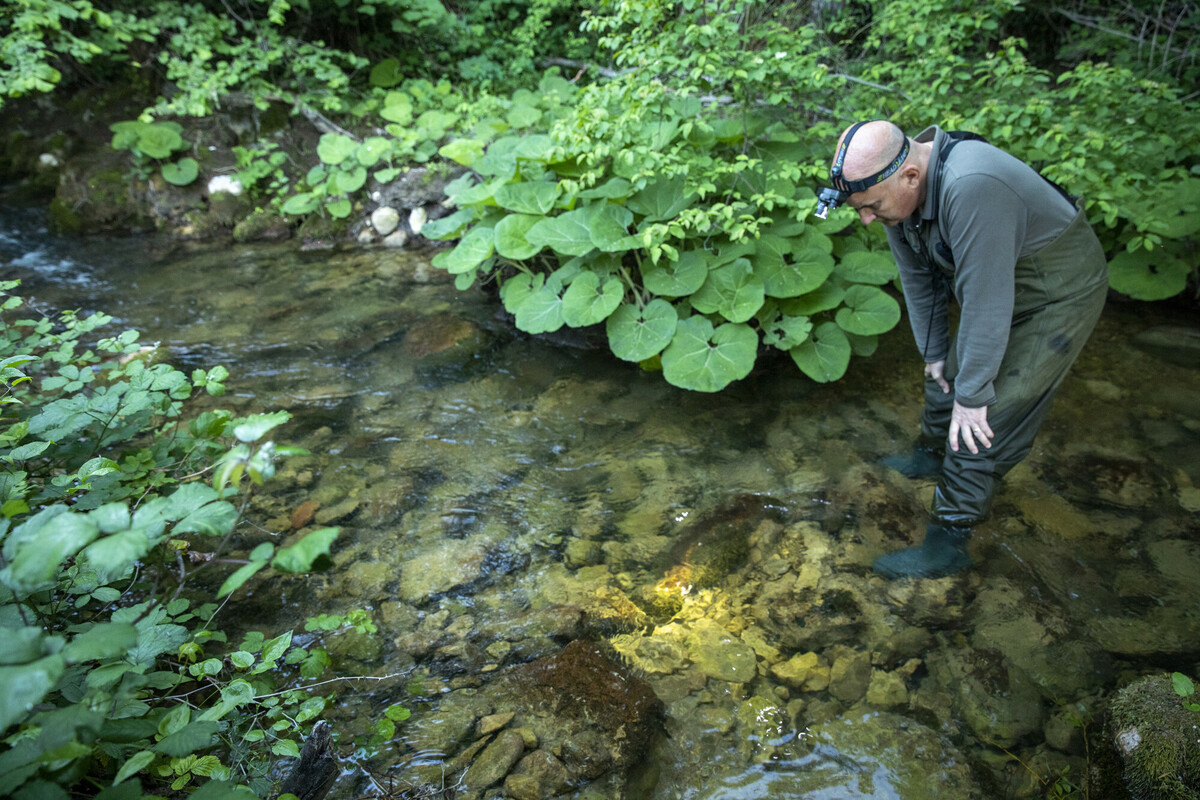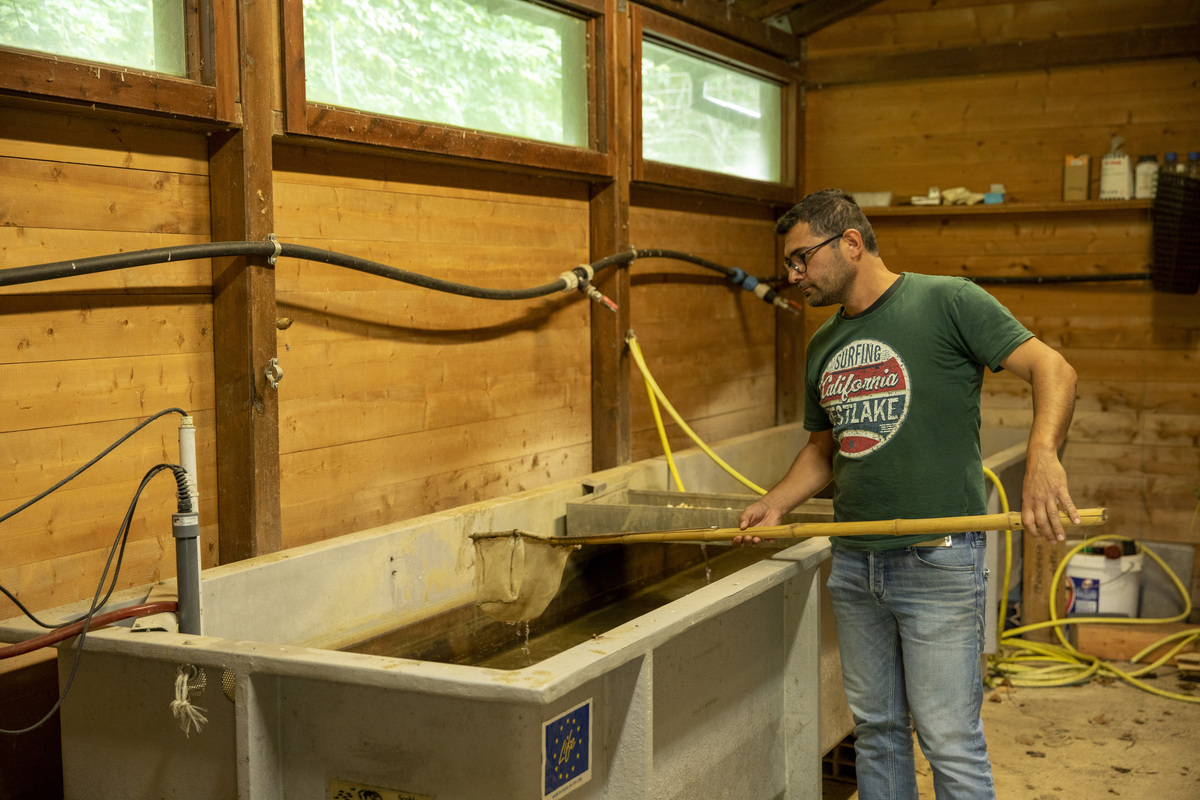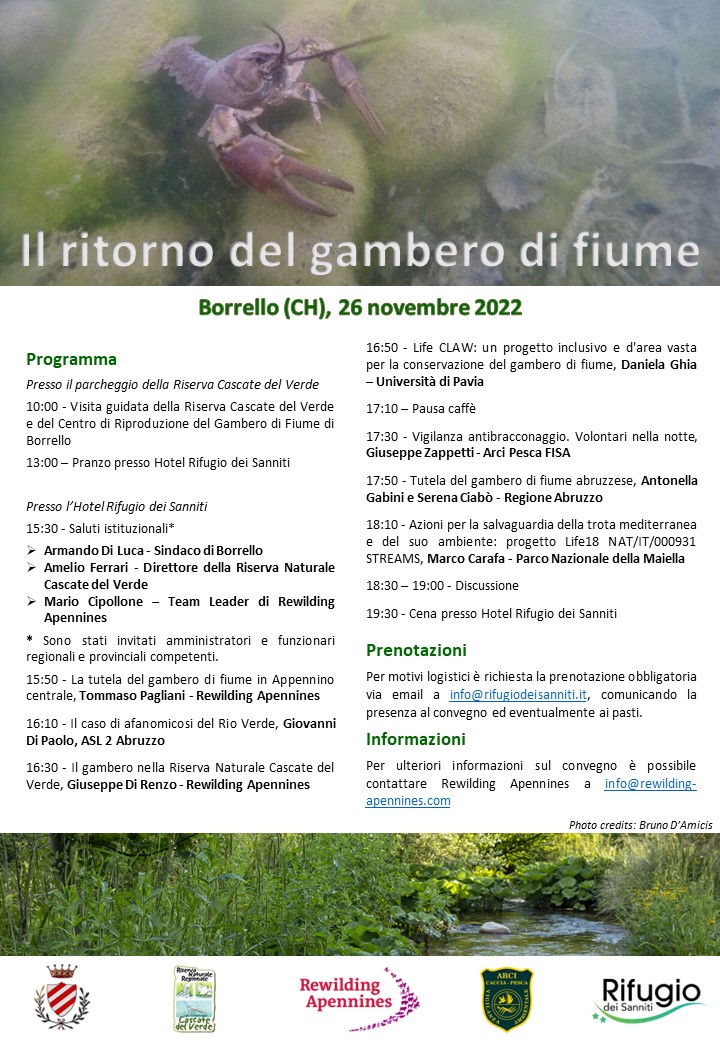A public event aims to make the public aware of the multiple ecological roles of the white-clawed crayfish, the threats to the survival of this unique subspecies of the Central Apennines and the commitment of organizations and entities to rewilding for its return to watercourses.

How many of you know the white-clawed crayfish? And how many are aware of the important key role that this species – or rather, this unique subspecies for the central Apennines, Austropotamobius italicus meridionalis – plays for the entire river ecosystem in which it lives?
The event “The white-clawed crayfish comeback” to be held in Borrello (CH) on November 26th has precisely the objective of bringing together all the knowledge and skills, local and otherwise, on this species, which is still endangered, and disclose them to the public. Its presence in our rivers and streams is an important indicator of the quality of the river ecosystem, it is a key species, so protecting the crayfish means protecting the water resource also for the benefit of us human beings.
The initiative is organized by Rewilding Apennines in collaboration with the Municipality of Borrello, the Cascate del Verde Nature Reserve, ARCI Pesca FISA and the Hotel Rifugio dei Sanniti, where the event will take place. In the morning there will be a guided tour of the Cascate del Verde Reserve and of the Crayfish Breeding Center of Borrello. Here Rewilding Apennines, together with local partners and the support of Rewilding Europe and Fondation Ensemble, is carrying out a crayfish breeding program to release them into nature over time and, therefore, increase their population. In fact, in the last decade the white-clawed crayfish have undergone a strong decline in the Verde River and in many other watercourses of the Central Apennines due to aphanomycosis or crayfish plague, introduced by non-autochthonous crayfish species, and the climate change, which is warming freshwater temperature levels and leading to prolonged droughts. Last but not least, poaching remains a serious threat and the fish supervisory organizations such as ARCI Pesca FISA play a key role to fight it.

In the afternoon there will be a conference open to everyone, during which there will be many institutional, technical-scientific and operational contributions dedicated to the conservation of white-clawed crayfish. In addition to the presence of the Mayor of Borrello, Armando Di Luca, and the Director of the Cascate del Verde Nature Reserve, Amelio Ferrari, competent regional and provincial administrators and officials were invited. Mario Cipollone, team leader of Rewilding Apennines, will talk about the rewilding initiatives dedicated to the species, conducted not only in Borrello, and will introduce the first technical-scientific presentation by Tommaso Pagliani, crayfish expert biologist and consultant of Rewilding Apennines. Next presentations will be by Giovanni Di Paolo of ASL 2 Abruzzo on the subject of aphanomycosis, Giuseppe Di Renzo, manager of the Borrello breeding center, Daniela Ghia, researcher of the Inland Water Laboratory of the University of Pavia, with the experience of the LIFE CLAW project, Giuseppe Zappetti of ARCI Pesca FISA with the precious work of voluntary surveillance of the Province of Chieti rivers, Antonella Gabini and Serena Ciabò of the Abruzzo Region Authority with the role and institutional tools for the management of the crayfish and its habitat. In conclusion, the presentation of Marco Carafa, from the Maiella National Park, will broaden the vision of the river ecosystem with the contribution of the LIFE Stream dedicated to the recovery of the native Mediterranean trout (Salmo cettii). The conference will then end with a final discussion hoping for future commitments and projects for the conservation of the white-clawed crayfish and its habitat.

“The commitment to protect the crayfish and to encourage its comeback to the watercourses of the Central Apennines makes us very proud, because we are convinced that increasing the populations of this species is essential to restore and extend the key role that it plays in the food chain of our rivers.”, says Mario Cipollone, team leader of Rewilding Apennines.
